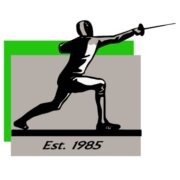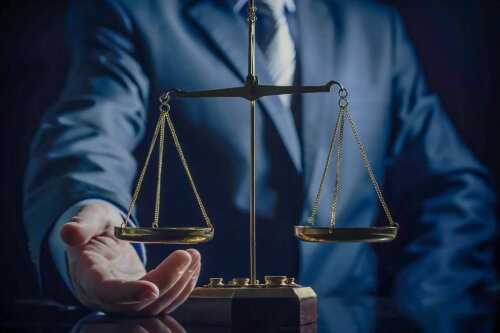Best Water Law Lawyers in White River
Share your needs with us, get contacted by law firms.
Free. Takes 2 min.
List of the best lawyers in White River, South Africa
About Water Law in White River, South Africa
Water Law in White River, South Africa, refers to the legal rules, regulations, and frameworks that govern the use, allocation, management, and conservation of water resources within the town and its surroundings. White River is located in the Mpumalanga Province, an area that relies heavily on water for agriculture, residential use, tourism, and environmental conservation. The legal landscape encompasses national legislation such as the National Water Act of 1998, local municipal by-laws, and customary rights held by rural and farming communities. The goal of Water Law is to ensure equitable and sustainable water use for all, prevent pollution, resolve conflicts over access, and protect the environment.
Why You May Need a Lawyer
Dealing with water-related issues can be complex due to overlapping regulations, different authorities, and the critical importance of water in daily life and economic activities. There are several scenarios in White River where seeking legal assistance from a Water Law expert may be necessary:
- Disputes over water rights between property owners, farmers, or neighbours
- Applications for water use licenses or permits for irrigation, boreholes, or commercial use
- Compliance issues with government regulations on water abstraction or discharge
- Pollution or contamination of water courses by businesses or individuals
- Development projects affecting rivers, wetlands, or catchment areas
- Enforcement actions by municipal or environmental authorities
- Transfers or sales of farms and properties with existing water use rights
- Community consultations and representations on water resources planning
- Appeals against decisions by government departments regarding water access
- Advice for non-profit or community organisations managing communal resources
Local Laws Overview
Several legal instruments shape the application of Water Law in White River:
- National Water Act 1998: This is the core legislation setting out how water is managed nationally. It requires sustainable use, protection, water licenses, and strategic use for economic and social development.
- Water Services Act 1997: Focuses on the provision of water and sanitation services at local levels. Municipalities are legally required to ensure adequate water supply for residents.
- Mpumalanga Provincial and Mbombela Local Municipality By-Laws: These by-laws apply within White River and set additional rules for water abstraction, borehole drilling, water restrictions, waste water disposal, and penalties for non-compliance.
- Catchment Management Agencies: These structures oversee local water resources and handle use rights, monitoring, and disputes.
- Customary and Riparian Rights: In rural areas, traditional systems of water use may exist alongside formal law, particularly affecting communal lands and agricultural activities.
Understanding which set of laws apply can be challenging, especially when multiple entities such as the Department of Water and Sanitation, local councils, and community groups are involved.
Frequently Asked Questions
What is a water use license and when do I need one?
A water use license is official authorisation from the Department of Water and Sanitation giving permission to use water for specific activities such as irrigation, industrial use, or commercial abstraction. You need one if your water use exceeds certain thresholds or if you plan to alter a river, wetland, or groundwater source.
Who owns the water resources in White River?
According to the National Water Act, South Africa's water resources are a national asset owned by the people and managed by the national government. Individuals and entities only have the right to use water in accordance with the law and permissions granted.
Is drilling a borehole on my property allowed?
Borehole drilling is allowed but subject to municipal by-laws and may require a water use license or registration, especially if it is intended for more than domestic use or may affect neighbours' water supplies.
How are water rights transferred when I buy or sell a farm?
Water use entitlements are typically linked to the land but must be formally transferred through an application process with the Department of Water and Sanitation and sometimes local management agencies.
What can I do if my neighbour is polluting a river or stream?
You can report pollution to your local municipality, the Department of Water and Sanitation, or a Catchment Management Agency. You may also seek legal remedies through civil court for damages or injunctions to stop unlawful pollution.
Are there restrictions on water use during drought or shortages?
Yes, municipalities and the Department of Water and Sanitation can impose restrictions on water use during droughts, including limits on irrigation, washing cars, or filling swimming pools.
How do I appeal a municipal decision about water supply?
You can appeal through municipal processes, provincial authorities, or, if necessary, through the courts if you believe the decision violates your rights or was unlawfully made.
What legal obligations do I have to protect water resources as a landowner?
Landowners must avoid polluting or overusing water, maintain existing water infrastructure responsibly, abide by permit conditions, and allow government officials access for inspections.
Can water law help with access to clean water for rural communities?
Yes, the law provides for the right to basic water supply and sanitation, and legal processes can support communities in advocating for infrastructure development and service provision.
What should I do if I receive a notice of non-compliance or a fine related to water use?
You should consult a Water Law expert promptly, review the notice for accuracy, gather documentation, and respond as required, possibly lodging an appeal if you believe the notice is incorrect.
Additional Resources
For further assistance and information related to Water Law in White River, consider the following resources:
- Department of Water and Sanitation: The national authority for water regulation, licences, and compliance.
- Mbombela Local Municipality: Responsible for by-laws, water supply, and local enforcement.
- Inkomati-Usuthu Catchment Management Agency: Oversees water management in the region including White River.
- Legal Aid South Africa: Provides free or affordable legal services for qualifying individuals.
- Local attorneys specialising in Water Law: Experienced legal practitioners can offer tailored advice and representation.
- Community Water Forums: Non-governmental groups that focus on advocacy, education, and representation in water matters.
Next Steps
If you are facing a water-related legal issue or require advice:
- Gather all related documentation such as permits, licenses, correspondence, and photographs.
- Identify the nature of your concern - whether it is about access, compliance, disputes, or development.
- Contact a qualified legal expert who specialises in Water Law in the White River area for an initial consultation.
- If necessary, escalate your matter to the relevant governmental authority or management agency.
- Participate in community forums or seek support from local organisations if your issue affects broader groups.
- Act promptly, especially if you receive a legal notice, enforcement action, or if the issue may cause environmental harm.
Professional legal advice can help clarify your rights, your obligations, and the most suitable way to resolve your water issue and protect your interests.
Lawzana helps you find the best lawyers and law firms in White River through a curated and pre-screened list of qualified legal professionals. Our platform offers rankings and detailed profiles of attorneys and law firms, allowing you to compare based on practice areas, including Water Law, experience, and client feedback.
Each profile includes a description of the firm's areas of practice, client reviews, team members and partners, year of establishment, spoken languages, office locations, contact information, social media presence, and any published articles or resources. Most firms on our platform speak English and are experienced in both local and international legal matters.
Get a quote from top-rated law firms in White River, South Africa — quickly, securely, and without unnecessary hassle.
Disclaimer:
The information provided on this page is for general informational purposes only and does not constitute legal advice. While we strive to ensure the accuracy and relevance of the content, legal information may change over time, and interpretations of the law can vary. You should always consult with a qualified legal professional for advice specific to your situation.
We disclaim all liability for actions taken or not taken based on the content of this page. If you believe any information is incorrect or outdated, please contact us, and we will review and update it where appropriate.









